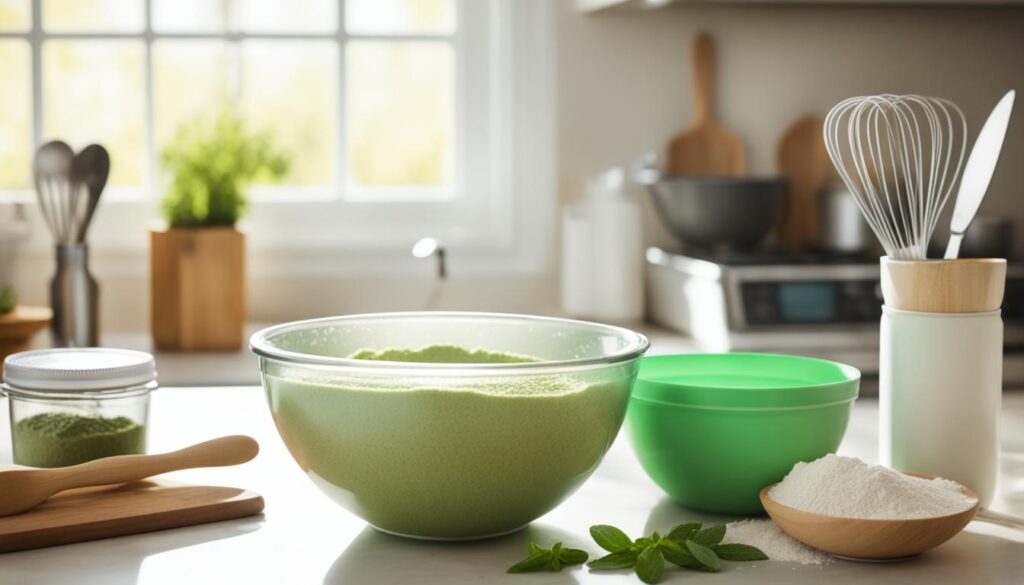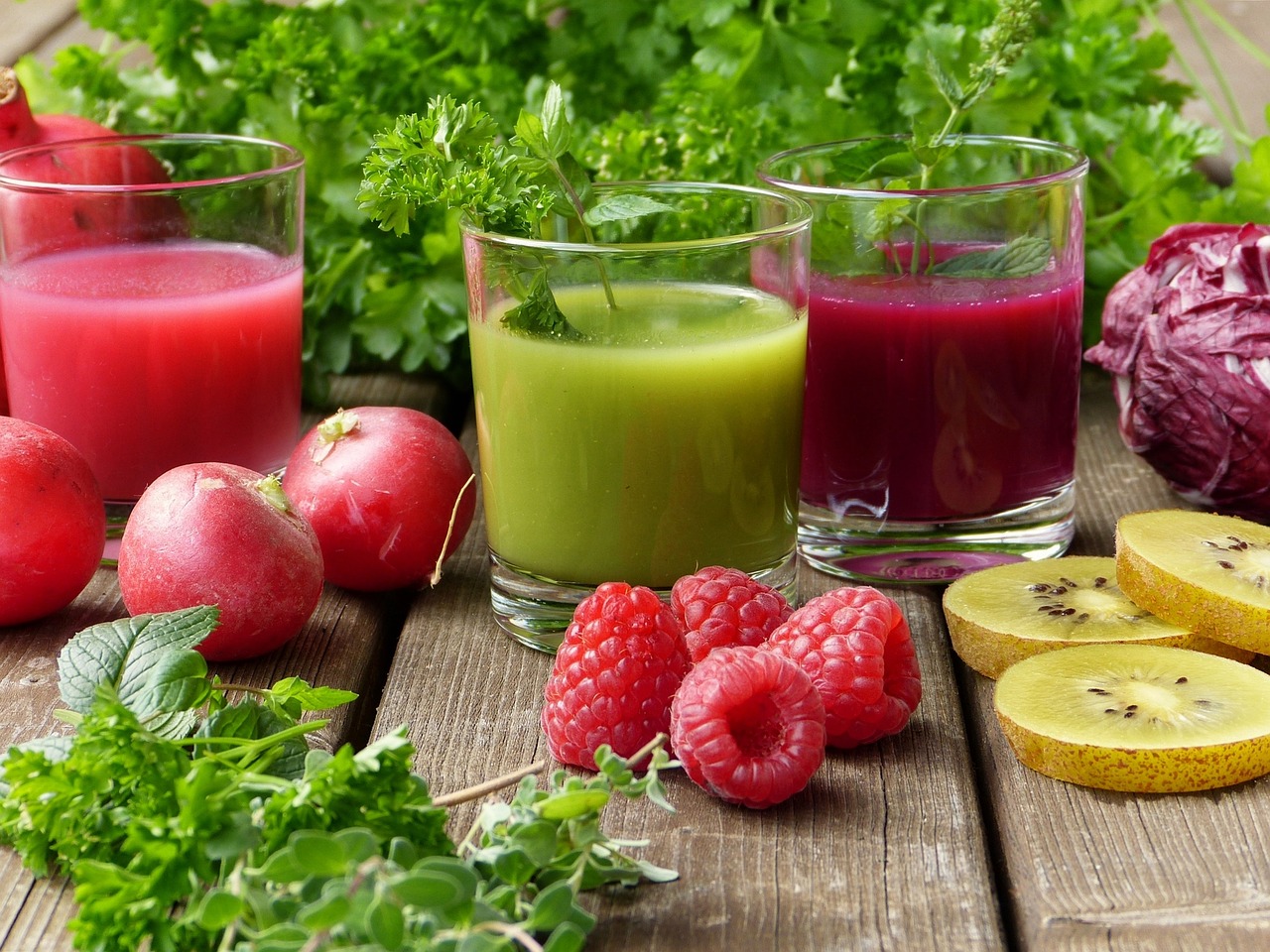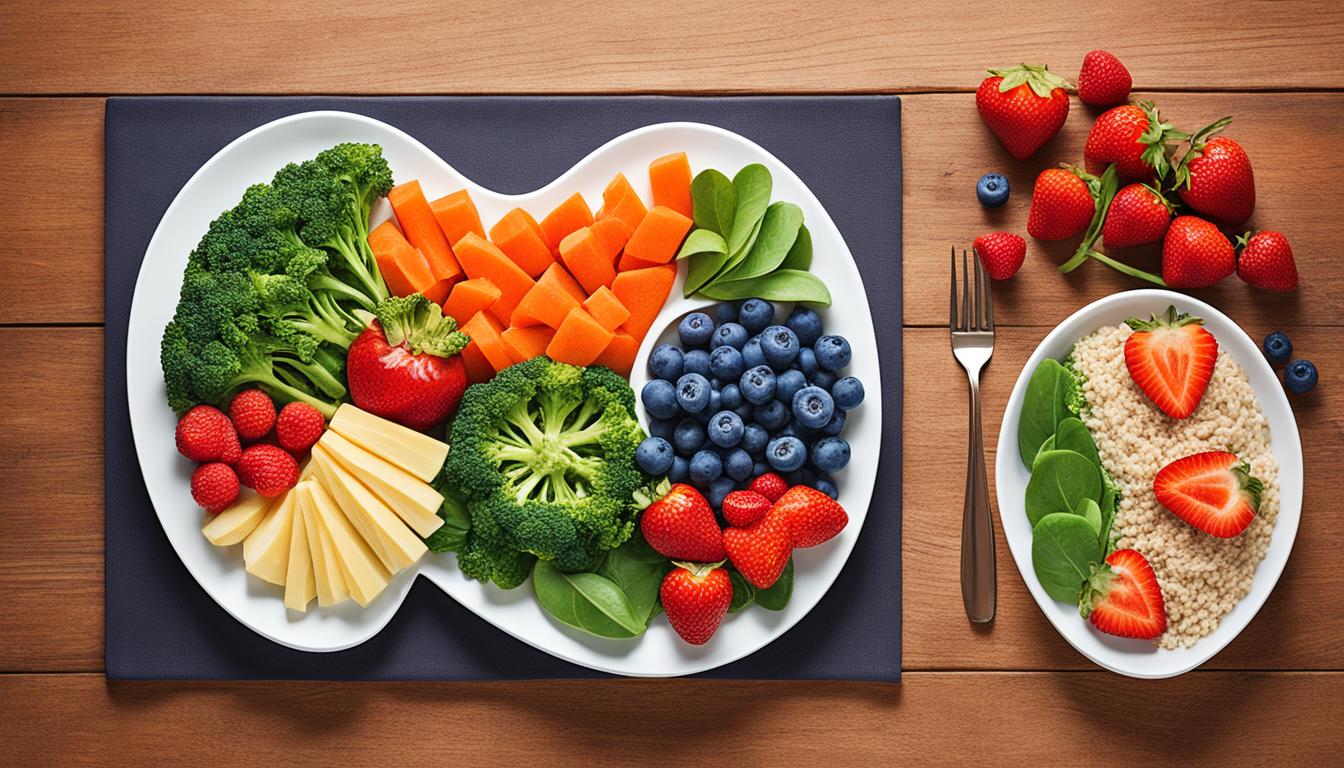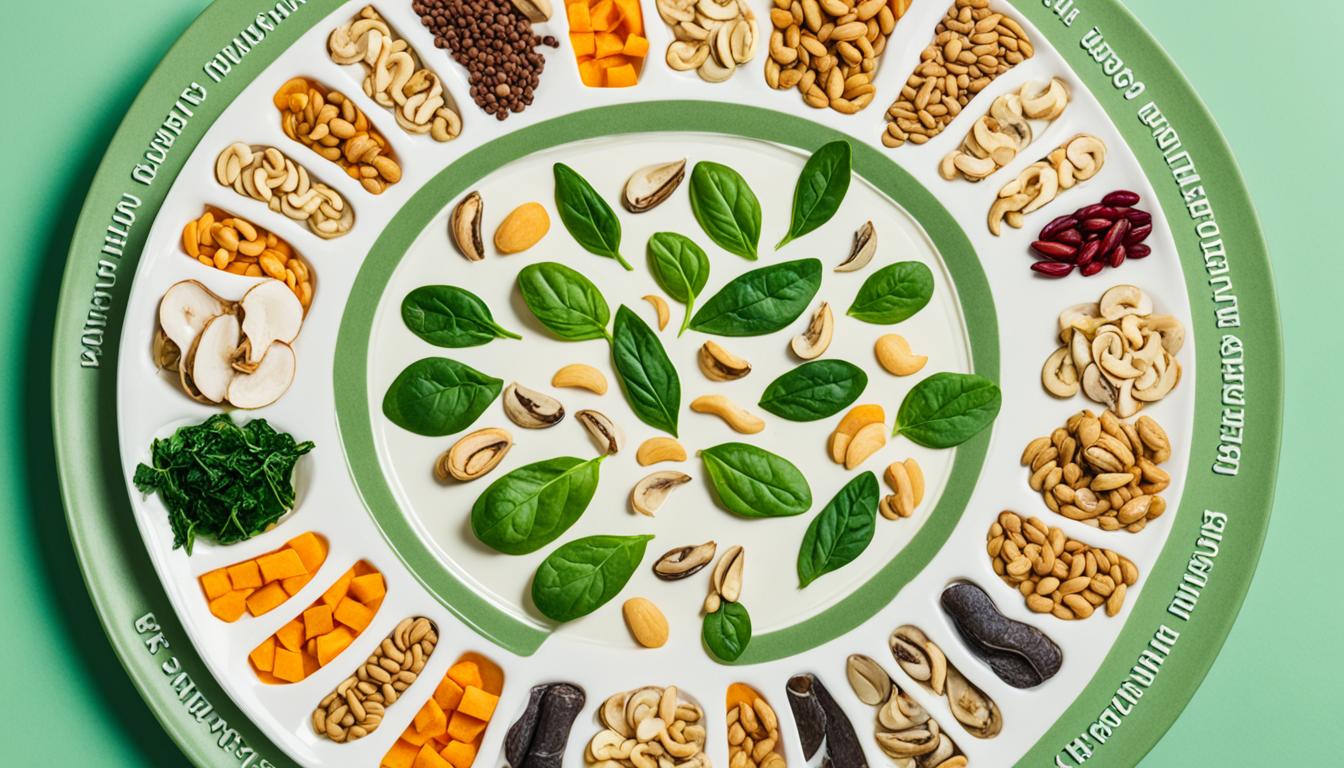Stevia vs. Sugar: Which Is Better?
Are you searching for the best sugar substitute? Have you ever wondered if stevia is a healthier alternative to sugar? Stevia, a plant-based, calorie-free sweetener, has been gaining popularity as a natural option for those looking to cut back on their sugar intake. But is it truly better than sugar when it comes to your health and well-being? Let’s compare the benefits and downsides of stevia and sugar to find out which is the better choice for your sweet cravings.
Key Takeaways:
- Stevia is a plant-based, calorie-free sweetener extracted from the leaves of the Stevia rebaudiana plant.
- It is 250–300 times sweeter than sugar and does not cause rapid spikes in blood sugar levels.
- Stevia offers benefits such as weight management and blood sugar control.
- However, it may have drawbacks like a potential bitter aftertaste and increased cravings for sweet foods.
- When comparing stevia to sugar, stevia is generally considered a healthier option due to its lower glycemic index and absence of calories.
What is stevia, and how is it made?
Stevia is a sugar substitute extracted from the leaves of the Stevia rebaudiana plant. This plant has been known for its sweetness and medicinal properties for centuries. The sweet taste of stevia comes from steviol glycoside molecules, which are extracted from the leaves and concentrated into a resin. The resulting concentrated stevia leaf extract is then spray-dried and processed into sweeteners.
Stevia-based sweeteners are available in both liquid and powdered form, catering to various preferences. Some products may also contain fillers like maltodextrin, which are added to enhance the texture or increase the bulk of the sweetener.
Unlike sugar, stevia is essentially calorie- and carb-free. This is because it is much sweeter than sugar, meaning only small amounts are needed to sweeten food or drinks. In fact, stevia extract is about 200–300 times sweeter than regular sugar.
To give you a visual representation, here is a table comparing the nutritional values of stevia and sugar:
| Stevia Extract | Sugar | |
|---|---|---|
| Calories | 0 | 16 |
| Carbohydrates | 0g | 4g |
As you can see, stevia extract contains zero calories and zero grams of carbohydrates, making it an attractive choice for those looking to reduce their calorie and carbohydrate intake.
Health Benefits of Stevia:
Stevia, a natural, calorie-free sweetener, offers numerous health benefits that make it a popular choice for those looking to improve their well-being. Let’s explore some of the key advantages of incorporating stevia into your diet:
Stevia and Weight Loss
One of the primary benefits of stevia is its ability to aid in weight loss. Being calorie-free, stevia allows you to enjoy its sweetness without adding extra calories to your diet. By substituting sugar with stevia, you can reduce your overall calorie intake, which can contribute to weight loss efforts.
Control of Blood Sugar Levels
For individuals with diabetes or those aiming to manage their blood sugar levels, stevia can be a valuable tool. Studies have shown that replacing sugar with stevia can help regulate blood sugar levels, making it a suitable alternative for people with diabetes or those at risk of developing the condition.
Improved Insulin Sensitivity and Heart Health
Stevia has been linked to improved insulin sensitivity, which means that it can enhance the body’s ability to utilize insulin effectively. This is especially beneficial for individuals with insulin resistance or prediabetes. Additionally, stevia has shown promise in reducing triglyceride levels and increasing HDL cholesterol levels, both of which are important factors for maintaining heart health.
While these health benefits are promising, it’s important to note that further research is needed to fully understand the long-term effects and benefits of using stevia. Incorporating stevia into your diet can be a beneficial step towards a healthier lifestyle, but it’s always wise to consult with a healthcare professional for personalized advice.

Stay tuned for the next section, where we will explore the potential downsides of stevia and how to mitigate them.
Potential Downsides of Stevia:
While stevia has many benefits, it’s important to consider its potential downsides as well. Understanding the possible drawbacks can help you make an informed decision about whether to incorporate stevia into your diet.
1. Bitter Aftertaste: Some people may find that stevia has a bitter aftertaste, which can affect their overall taste experience. This bitterness can vary depending on the brand and form of stevia used.
2. Gut Bacteria: Stevia products often contain added fillers and sweeteners, which may disrupt the balance of gut bacteria and potentially lead to digestive issues. The impact on gut health can vary from person to person.
3. Increased Cravings: Stevia’s intense sweetness has been associated with increased cravings for sweet foods. This can be problematic for individuals trying to reduce their overall sugar consumption or maintain a healthy diet.
4. Body Weight: Although stevia is calorie-free and does not contribute to weight gain directly, some studies have shown no significant improvements in body weight or calorie intake with the use of zero-calorie sweeteners like stevia. It’s essential to remember that individual responses to sweeteners can vary.
5. Insulin Response: While stevia does not increase blood sugar levels, it may still trigger an insulin response in some individuals. This response can impact blood sugar regulation and potentially affect overall insulin sensitivity.
To better understand these downsides and assess your personal tolerance and preferences, it’s crucial to experiment and monitor your body’s response to stevia consumption.
In the next section, we will compare the health impacts of stevia and sugar to help you make an informed decision about which sweetener is right for you.
Stevia vs. Sugar: A Comparison of Health Impacts
When comparing stevia to sugar, it’s important to consider the health impact of both options. Stevia, a natural plant-based sweetener, offers several advantages over sugar, making it a healthier alternative for various health concerns.
Firstly, stevia has a lower glycemic index compared to sugar. The glycemic index measures how quickly a food can raise blood sugar levels. Stevia has a minimal impact on blood sugar, making it suitable for individuals with diabetes or those looking to manage their weight.
Sugar, on the other hand, has been linked to inflammation, obesity, and an increased risk of chronic conditions such as type 2 diabetes and heart disease. Consuming excessive amounts of sugar can contribute to these health issues and should be limited in a balanced diet.
Stevia, being calorie-free, provides a guilt-free option for individuals concerned about weight management. It can be used as a sugar substitute without adding extra calories to the diet.
In terms of heart health, stevia offers additional benefits. Studies have shown that stevia consumption may be associated with improved insulin sensitivity, decreased triglyceride levels, and increased HDL cholesterol levels. These factors contribute to reducing the risk of heart disease.
It’s important to note that highly refined stevia extracts and blends may not offer the same health benefits as pure stevia. When choosing stevia products, opt for those that are made with 100% stevia extract to ensure maximum health impact.
Overall, the health impact of stevia is significantly better than that of sugar. Stevia’s lower glycemic index, calorie-free nature, and potential heart health benefits make it a favorable choice for those seeking a healthier sweetener option.
Is stevia a good substitute for sugar?
Stevia can be used as a substitute for sugar in baking and cooking. It provides a natural, calorie-free alternative for those looking to reduce their sugar intake. However, it’s important to note that stevia may not offer the same texture and browning effects as sugar due to its lack of the Maillard reaction.

Stevia-based sweeteners are available in various forms, including powder, liquid drops, and dissolvable tablets. This makes it easy to incorporate stevia into your favorite recipes. Whether you’re sweetening your morning coffee or baking a batch of cookies, stevia can be a versatile option.
When using stevia in baking, it’s important to follow the recommended sugar-to-stevia ratio provided by the brand. This ensures that you achieve the desired level of sweetness in your baked goods. Experimenting with different ratios can help you find the perfect balance for your taste preferences.
In some cases, blending stevia with sugar can be a great way to improve the taste and texture of your foods and drinks. This combination allows you to reduce the overall amount of sugar while still enjoying a satisfying sweetness.
Using Stevia in Baking: Baking Tips and Tricks
When using stevia in baking, it’s essential to keep the following tips in mind:
- Measure accurately: Since stevia is much sweeter than sugar, you’ll need to adjust the amounts accordingly. Use the recommended conversion ratio provided by the manufacturer to ensure the right level of sweetness.
- Balance flavors: Stevia can have a slightly bitter aftertaste when used in large amounts. To counterbalance this, consider adding a pinch of salt or incorporating other flavors, such as vanilla extract or spices.
- Experiment with different recipes. Not all recipes work well with stevia as a direct substitute for sugar. Start with tried and tested stevia-specific recipes or modify existing recipes that have been developed specifically for stevia.
“Using stevia in baking adds a touch of natural sweetness without the extra calories. Just remember to make the necessary adjustments and be mindful of the flavor balance.”
By incorporating stevia into your baking routine, you can enjoy sweet treats with fewer calories. Whether you’re trying to manage your weight or reduce your sugar intake, stevia can be an excellent option for sweetening your favorite foods and drinks.
| Benefits of Using Stevia in Baking | Considerations for Baking with Stevia |
|---|---|
| Calorie-free sweetener | Lack of Maillard reaction may affect texture and browning |
| Does not spike blood sugar levels | Possible bitter aftertaste in large amounts |
| Can be used in various forms (powder, liquid, tablets) | May require adjustment of other ingredients for flavor balance |
Stevia Safety and Recommendations:
When it comes to the safety of stevia as a sugar substitute, it’s important to understand the different types of stevia extracts and their potential effects. Pure stevia extract has been approved as safe by the FDA, but highly purified stevia extracts and crude stevia extracts have different safety profiles. It’s important to note that some stevia products may contain additional ingredients and fillers that can affect gut bacteria and potentially increase blood glucose levels.
To ensure your stevia consumption is safe and beneficial, it is recommended to choose products that list only 100% stevia extract on the label. By opting for pure stevia, you can avoid potential drawbacks associated with added ingredients and fillers. When using stevia, it’s also crucial to adhere to the recommended daily intake limit.
The acceptable daily intake of stevia is 4 mg/kg of body weight. This guideline helps ensure that you consume stevia in moderation and within safe limits. By following this recommendation, you can enjoy the benefits of stevia without any potential adverse effects.
If you experience any negative side effects from consuming stevia or have specific dietary restrictions, it’s important to consider alternative sweeteners. There are various sugar substitutes available on the market, each with its own set of benefits and drawbacks. By exploring these alternatives, you can find a suitable option that meets your specific needs and preferences.
| Stevia Safety and Recommendations | Stevia Alternatives |
|---|---|
| Choose products with 100% stevia extract | Monk fruit sweetener |
| Adhere to the recommended daily intake limit (4mg/kg of body weight) | Acesulfame potassium |
| Consider alternative sweeteners if you experience side effects or have dietary restrictions | Aspartame |
| Saccharin | |
| Sucralose | |
| Sugar alcohols |
Other sugar substitutes:
In addition to stevia, there are other sugar substitutes available on the market. These alternatives offer different levels of sweetness and may have their own unique benefits and drawbacks. It’s important to familiarize yourself with these substitutes, read labels, and understand their properties to make an informed choice that suits your dietary needs and preferences.
Monk Fruit Sweetener
Monk fruit sweetener, also known as Luo Han Guo, is a natural sweetener derived from the monk fruit. It is intensely sweet without the calories and carbohydrates found in sugar. Monk fruit sweetener is considered a popular choice among individuals looking to reduce their sugar intake.
Acesulfame Potassium
Acesulfame potassium, commonly known as Ace-K, is a calorie-free sweetener that is 200 times sweeter than sugar. It is often used in conjunction with other sweeteners to enhance the overall taste and sweetness of food and beverages. Ace-K is commonly used in sugar-free or low-calorie products.
Aspartame
Aspartame is one of the most widely used artificial sweeteners in the world. It provides a sweet taste without the calories associated with sugar consumption. Aspartame is commonly found in diet soft drinks, chewing gum, and other sugar-free products.
Saccharin
Saccharin is a zero-calorie sweetener that has been used for over a century. It is commonly found in tabletop sweeteners and sugar-free products. Saccharin is intensely sweet and may have a slightly bitter aftertaste.
Sucralose
Sucralose is a non-caloric artificial sweetener that is derived from sugar. It is commonly used in a wide range of food and beverage products, including baked goods, soft drinks, and dairy products. Sucralose provides sweetness without the calories or negative effects on blood sugar levels.
Sugar Alcohols
Sugar alcohols are a type of sweetener that occurs naturally in certain fruits and vegetables. They are also commonly used as sugar substitutes in sugar-free or low-calorie products. Sugar alcohols have a similar sweetness to sugar but are lower in calories and have a minimal impact on blood sugar levels.
When choosing a sugar substitute, it’s essential to consider your specific dietary needs and preferences. Some sweeteners may be more suitable for certain individuals or specific dietary restrictions. It’s always a good idea to consult with a healthcare professional or a registered dietitian to determine the best sugar substitute for your needs.
therefore,
In conclusion, when it comes to choosing between stevia and sugar, stevia emerges as a healthier alternative. As a calorie-free, plant-based sweetener, stevia offers several health benefits, including its potential role in weight management and blood sugar control. With its lower glycemic index and absence of calories, stevia is particularly suitable for individuals with diabetes or those seeking to reduce their calorie intake.
However, it’s important to keep in mind that stevia is not without its potential downsides. Some people may find stevia to have a bitter aftertaste, and it could potentially impact gut bacteria. As with any sweetener, moderation is key. It’s essential to consider the overall impact of sweeteners on your health and well-being.
In the stevia vs. sugar debate, personal preferences and individual health needs ultimately play a significant role in decision-making. While sugar may be more familiar and widely used, stevia provides a viable and natural alternative. By weighing the benefits and drawbacks of each, individuals can make an informed choice that aligns with their goals and lifestyle. Whether it’s reducing caloric intake, managing blood sugar levels, or simply seeking a healthier option, stevia offers a compelling alternative to traditional sugar.
FAQ
Is stevia a better sugar substitute than regular sugar?
What is stevia, and how is it made?
What are the health benefits of stevia?
Are there any downsides to using stevia?
How does stevia compare to sugar in terms of health impact?
Can stevia be used as a substitute for sugar in baking?
Is stevia safe to consume?
Are there other sugar substitutes available?









